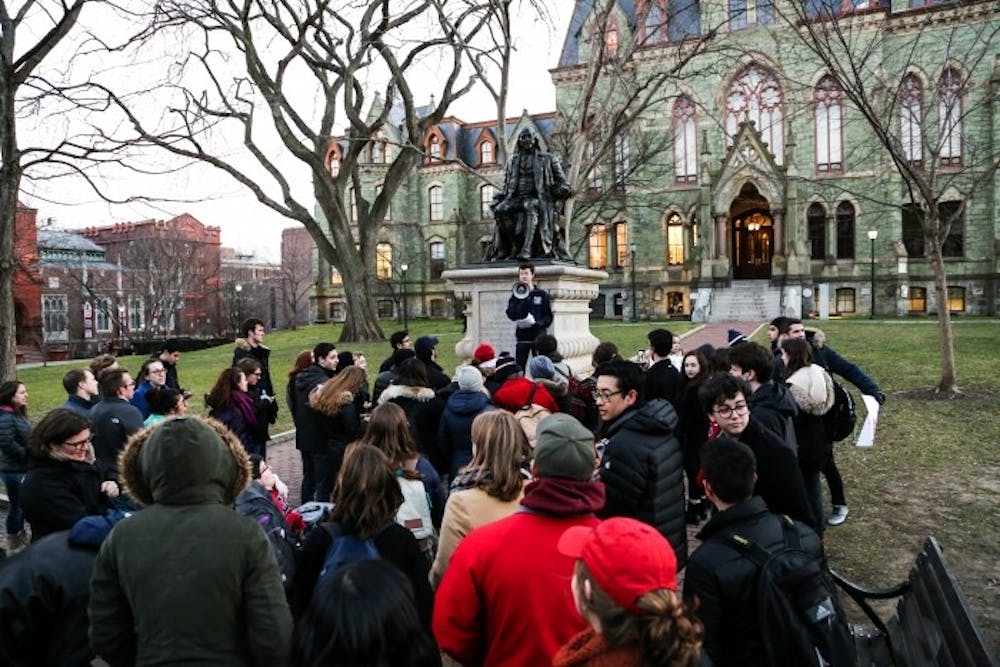For many members of Penn Democrats, the loss of Democratic Senate candidate Katie McGinty and the election of 1968 Wharton graduate Donald Trump was a dismal blow.
Although many students question the future plans of the organization under a Trump presidency, the Penn Dems executive board is resoundingly clear in its post-election strategy: First, this isn’t new. And second, protests work.
“I think it’s important to remember that Penn Dems existed long before last fall semester,” Penn Dems President and College sophomore Rachel Pomerantz said. “We’re going to continue to exist and be a vibrant organization, no matter how the election turned out.”
The mission of the organization — to uphold Democratic values and educate the Penn community — remains unchanged, but the group’s strategies have adapted to the outcome of the presidential election.
“In the fall, [our strategy] was campaigning for the candidates that we really cared about. This semester, it means speakers, education events, advocacy and fundraising,” Pomerantz said.
But despite Penn Dems’ long history — both during and between election cycles — business as usual does not mean remaining stagnant.
“I don’t think we foresaw exactly how horrible a Trump presidency would be,” Penn Dems Vice President and College sophomore Ari Goldfine said. “We’ve made a definitive effort to change.”
And as a result of hard Democratic Party losses in November, Goldfine said that they’ve had to “stop advocating and start resisting to a certain extent.”
And resist they have.
Despite having agreed in November to move the club in a more activist direction, Goldfine added, “once Trump started issuing executive orders, we moved beyond just legislative activism, and oriented ourselves toward more direct action — whether protesting or organizing phone banks to call our senators.”
When asked about the effectiveness of protests, Goldfine, an intern at a political consulting firm, expressed her frustration.
“I don’t understand how any generation who came of age during the Tea Party movement could say that protests don’t work,” Goldfine said. “It’s super easy to sit in your classroom and say ‘look at all those people on the ground; don’t they know no one is listening?’ But that’s not true.”
In order to prove her point, Goldfine shared an example that hits close to home for Pomerantz: the Moral Monday protests against former North Carolina Gov. Pat McCrory.
“If you look at the polling, you see that [McCrory’s] popularity tanked,” Pomerantz, a North Carolina resident, said. “And I think most political observers would attribute that to the sustained protests.”
Penn Dems Political Director and Wharton freshman Dylan Milligan agrees that protests are effective.
“I try to imagine: What if there was no Women’s March? What if two plus million people across the country didn’t show that they disagreed with Trump’s policies? It’d be tacit support from the country,” Milligan, who organized a Penn Dems trip to the Women’s March in Washington D.C., said. “It’s important to hurt Trump’s ego a little bit, but also to show the international community that we are against his very — in my opinion — inhumane policies.”
But despite their relative successes, some executive board members are disillusioned by what they consider a lack of political engagement at Penn.
“This campus has really not shown up in ways that it could,” Goldfine said. “It’s the campus culture that I’ve always expected of Penn, but it’s really a shame.”









